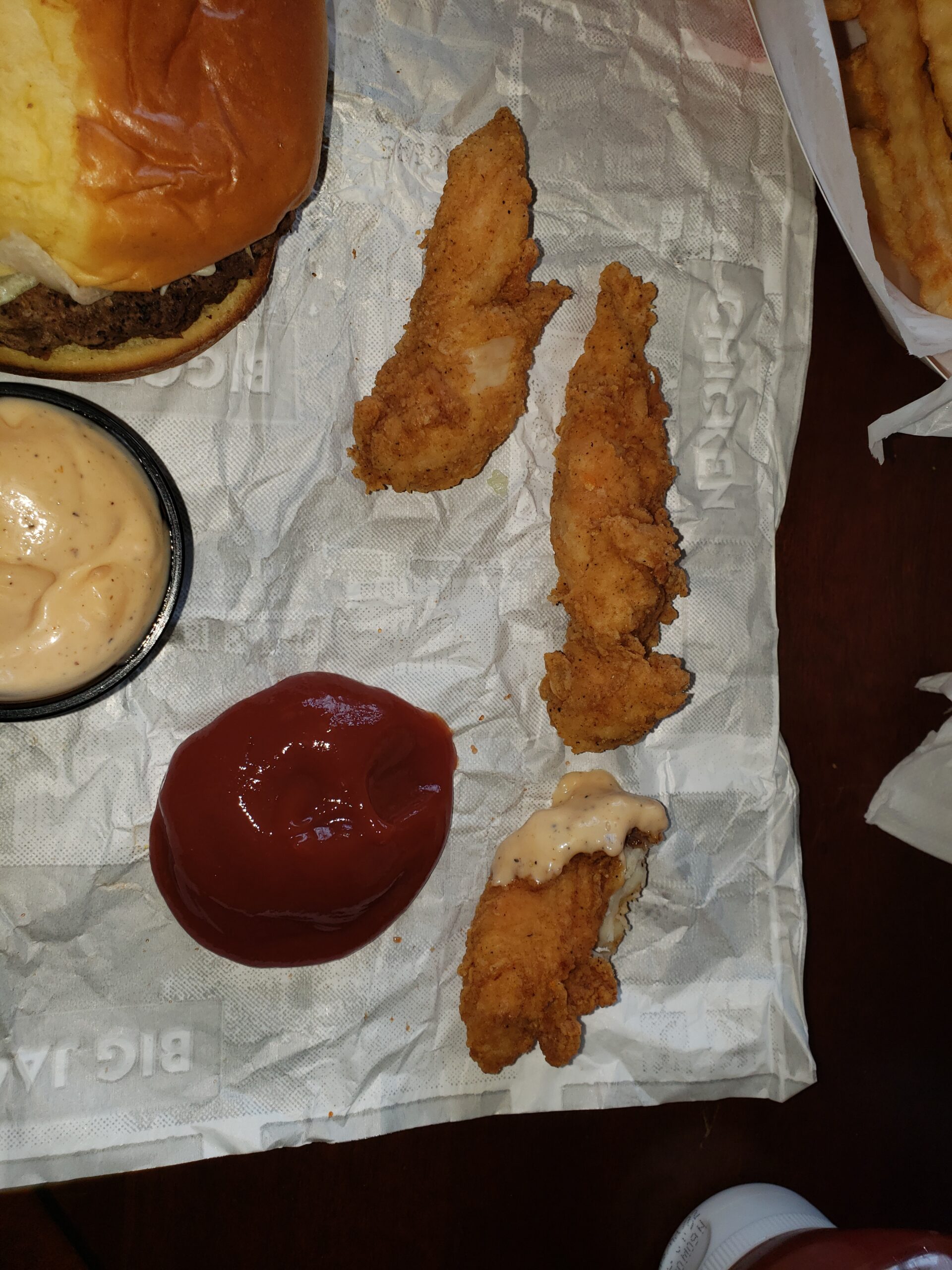I really don’t eat a lot of fast food but my kitchen is packed up for the move and we have to eat.
We went to Jack’s yesterday.
Chicken tenders and burgers make everyone happy.
Wow…
The chicken tenders are half the size they used to be and the burger shrunk also.
Same price, smaller portions.
Don’t tell me rampant inflation isn’t real.


I eat chicken nearly every day. Damn right the price has jumped.
EVERYTHING has shunk except cost. Ice cream used to be half gallon. Now its 1.5 quarts. Body shop materials in the last couple years are up 400%
“Don’t tell me rampant inflation isn’t real.”
But at least there are no more mean tweets. LOL!
I still remember buying five sticks of gum for a nickel. Then the lying advertising game explaining why seven sticks for a dime was a better deal.
Kroger’s store-brand tortilla chips were on sale at 4/$5. They were also 2 ounces a bag smaller.
It’s faster or slower, but it always goes up. I remember when a pack of cigarettes was 50 cents. In 1969. But my uncle said to me that in 1939, a pack was 10 cents.
On the other hand, at that time, his starting salary at the steel mill was 50 cents an hour, as an apprentice electrician.
He said the guys on the floor made 25 cents an hour.
So, I did the math. Just cigarettes (which, I acknowledge, have been booted in price for “health reasons”, are not a true yard stick), but a regular starting salary in 1939 was, in a way, 2 1/2 packs of cigarettes an hour. If today was a comparison, your starting salary should be $18 an hour.
BUT, as I said, cigarettes are not comparable due to other factors.
So let’s take the old-fashioned bottle of Pepsi, which sold in 1939 for 10 cents for a 12-ounce bottle. So a starting salary of 25 cents an hour would buy you 2 1/2 Pepsis, (12 ounce).
So, taking a guess that 2 1/2 Pepsis costs 5 bucks, then minimum wage of 5 bucks an hour is appropriate.
(Sigh)
It’s hard to compare cigarettes and Pepsi, but I get the feeling that inflation makes (on average) everything–that is wages and costs–go up at about the same rate.